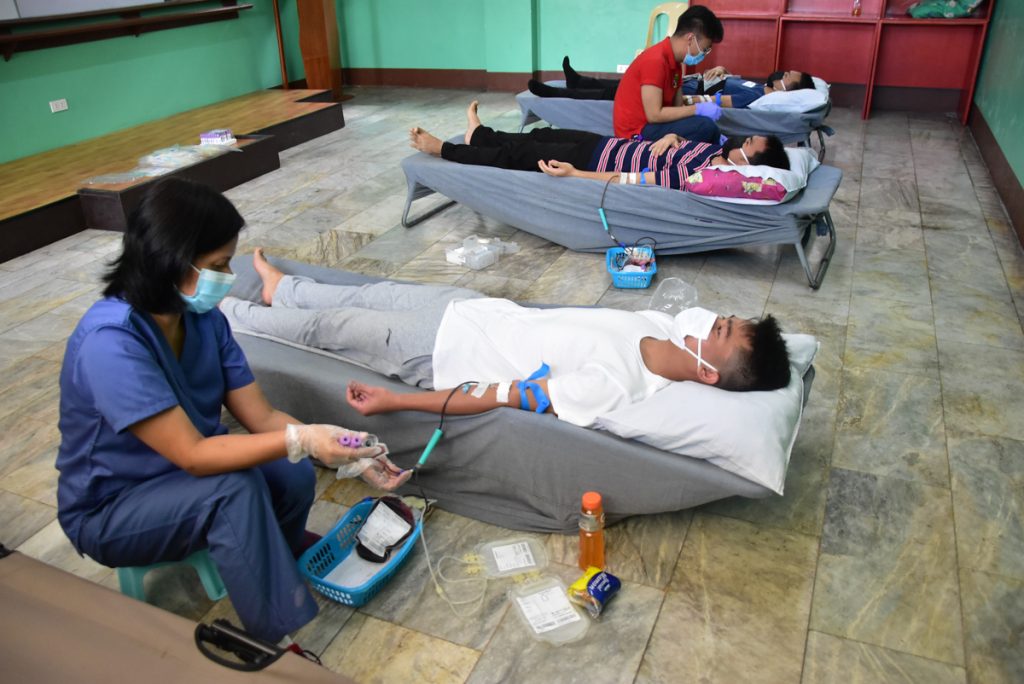CaReS donates 28 bags of blood amidst Covid-19 pandemic

BAGUIO CITY–The demand for blood has always been higher than its supply. This is a fact known only too well to Roselyn Reyes, a Medical Technologist III at the Baguio General Hospital Medical Center (BGHMC).
“The need for blood reaches approximately 50 units a day at BGHMC alone,” she said. “On ordinary days, we could harvest 40 units a day. There is a deficit, yes, but we got by because people were willing to help.”
This, however, changed drastically in a world reeling from the corona virus pandemonium.
“Because of Covid-19, we would be lucky if we could collect 15 bags of blood a day,” Reyes confided. “People no longer go to hospitals to donate blood for fear of contracting Covid there, aside from the fact that they are also hindered by the strict implementation of quarantine protocols.”
To remedy the growing concern, Reyes said the Department of Health is intensifying its mobile blood donation campaigns by sending medical personnel to the barangays and private establishments to collect blood.
Reyes and her team were at Casiciaco Recoletos Seminary last June 17, 2020 for an organized bloodletting activity. Of the 48 formators and seminarians who voluntarily presented themselves, only 28 qualified and donated blood.
“We would like to commend our ‘wounded soldiers’ for saving lives this morning by donating blood,” Fr. Ralph Laureen S. Ciceron, OAR said during the post-lunch announcements at the refectory.
The college prefect of discipline was a one-time recipient of blood transfusion that saved his life after contracting dengue. He, with Fr. Joseph Philip Trayvilla, OAR, was one of those who donated blood during the activity.

“We do not wish any reward in return but the reward of eternal life,” he added. “Who knows that by donating blood, we also inspire another person’s vocation.” Fr. Ciceron claimed that he seriously considered his religious vocation after having recovered from dengue.
“Blood donation is a social responsibility”
Reyes stressed the importance of donating blood, not just to the donor, but more so to the beneficiary.
“There is no medicine that we could manufacture in laboratories which we could use in blood transfusion operations,” she said.
During the present health crisis, moreover, she said the demand for blood is ever on the rise.
“We need blood donations in the fight against Covid,” she said, adding that Covid patients usually become anemic which requires blood transfusion. Moreover, she noted, Covid patients have other ailments prior to contracting the virus, such as heart and kidney diseases and cancer, among many others.
With their immune defense system down, they easily contract the virus; and during their Covid confinement, they continuously need blood transfusion, she said.
“I hope that people realize that blood donation is a social responsibility. We need to help others in need because we do not know when we need help ourselves. The next person in need of blood could be our relatives,” she said.


